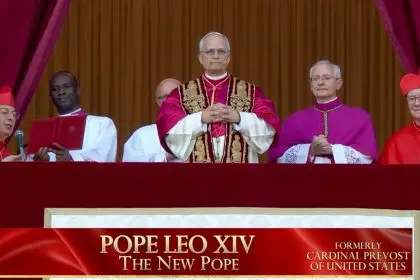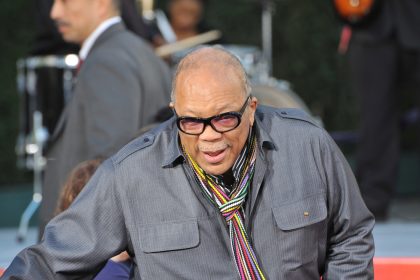 Jazz trumpeter Russell Gunn, 38, stopped in recently to share his compelling story of how he took his love of hip-hop and built his brand of Bebop Jazz around it. From there, the Chicago-born musician used his “brass” to back everybody from straight-ahead jazz great Wynton Marsalis to R&B crooners Maxwell and Ne-Yo. He’s even churned out four CDs of his own (Gun Fu, Love Requiem, Ethnomusicology Vol. 1, and Smokin’ Gunn), and I doubt he’ll stop there.
Jazz trumpeter Russell Gunn, 38, stopped in recently to share his compelling story of how he took his love of hip-hop and built his brand of Bebop Jazz around it. From there, the Chicago-born musician used his “brass” to back everybody from straight-ahead jazz great Wynton Marsalis to R&B crooners Maxwell and Ne-Yo. He’s even churned out four CDs of his own (Gun Fu, Love Requiem, Ethnomusicology Vol. 1, and Smokin’ Gunn), and I doubt he’ll stop there.
In honor of Black History Month, he felt it important to drop 10 names of jazz musicians who he believes laid the foundation for music and must be profiled for today’s youth:
1. Louis Armstrong – He’s one of the greatest musicians that ever walked the face of the earth and without him there really is no American music. He was a jazz trumpeter and singer.
2. Duke Ellington – He changed the game and kept it moving. He was a composer, pianist and big band leader.
3. Charlie Parker – His is the language that we all play by and that we use to improvise with. He was an American jazz saxophonist and composer.
4. Miles Davis – My musical concept of how I approach things and the way I deal with a band is Miles Davis’s. He was an American trumpeter, bandleader, and composer.
5. John Coltrane – The King of the Sax. His styles are the definition of jazz sax.
6. Oscar Peterson – One of the greatest piano players of all time with phenomenal technique, speed, dexterity and an amazing ability to swing at any tempo.
7. Dizzy Gillespie – He was a major figure in the development of bebop and modern jazz. He taught and influenced many other jazz greats.
8. Thelonious Monk – The grand-daddy of classic jazz. What Davis was to horn and Coltrane was to sax, Monk is to jazz piano.
9. Benny Goodman – He was a clarinetist and orchestra leader who earned the name “King of Swing.” Jazz Swing was a version of jazz that offered a more syncopated rhythm that invited dancing.
10. The Marsalises – They’re a family from today’s [era], but they represent a crossover between the classical style and the more modern jazz pieces. One of the greatest jazz families ever and had a major impact on jazz in the late 20th century.
“The thing about jazz is its nature to change, which is so African American. We can adapt to whatever is going on and we keep it moving. It’s important for the future, its important for the past that we never forget those recordings and we study those recordings.” —russell gunn







